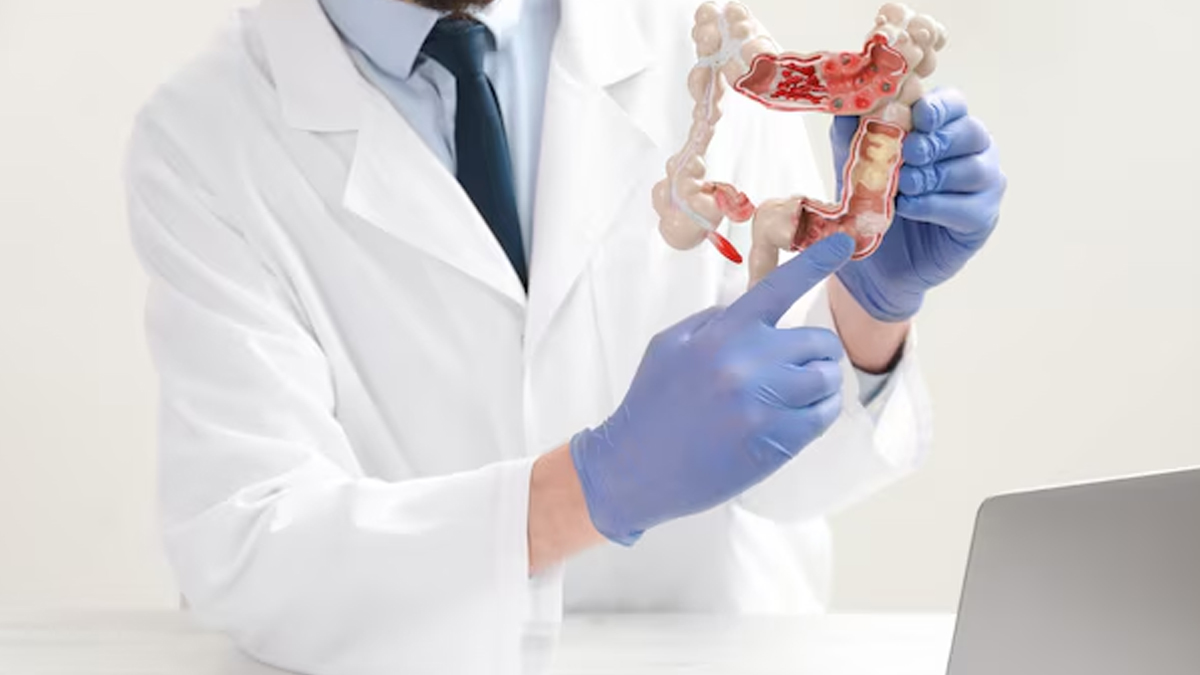
In recent months, TikTok has been flooded with videos promoting colon cleansing as the ultimate solution for better digestion, glowing skin, and higher energy levels. Influencers have all good things to say about this wellness hack, but is it worth the hype and really backed by science? To get some clarity, we spoke toDr Pradipta Sethy, Director of Gastroenterology, Manipal Hospitals, EM Bypass and Mukundupur, who shared everything you need to know about colon cleansing and its potential risks.
Table of Content:-
Also Read: Colon Cancer Vs. Irritable Bowel Syndrome (IBS): How To Tell The Difference
What Exactly Is Colon Cleansing?

“Colon cleansing means removing stool from the colon with the help of medicines or preparations, often laxatives, just to clean the colon,” explained Dr Sethy. It is like passing stool with the aid of certain substances. People either use medications like laxatives or sometimes water; for example, they give an enema through the rectum to clean the colon. That is called colon cleansing.
While this process sounds straightforward, Dr Sethy stressed that it’s not something that should be done casually or regularly without medical need.
In general, our bodies already have a natural system to clean the colon through water secretion in the intestines and with the help of gut bacteria. This means the colon is already self-cleaning, and routine colon cleansing is unnecessary.
Does Colon Cleansing Improve Digestion, Skin, Or Energy Levels?

Many TikTok users swear by colon cleansing, claiming it boosts digestion, clears skin, and increases energy. However, Dr Sethy disagreed.
“I don’t agree with these claims because there are lots of side effects, and there is no proven benefit,” he said.“We don’t advise colon cleansing unless and until we are preparing for a colonoscopy or in cases where a patient has impacted stool in the colon. Otherwise, we don’t recommend it.”
In some cases, colon cleansing can lead to electrolyte imbalance, nausea and vomiting, lesions and dehydration, as reported in a 2020 study published in the International Journal of Surgery.
He adds that relying on colon cleansing can be harmful: “Some people become dependent on it, and it can affect their natural bowel movements.”
Also Read: Colon Cancer Alert: 7 Foods To Ditch For A Healthier Gut
The Side Effects of Colon Cleansing
Far from being a harmless wellness hack, colon cleansing can actually pose risks. Dr Sethy outlines possible side effects:
- Dehydration
- Electrolyte imbalance
- Cramping
- Infections
- Dependence on cleansing methods for regular bowel movements
“Because of these risks, colon cleansing should not be practised as a routine health measure,” he warned.
Safer, Science-Backed Ways To Support Gut Health
-1755513679888.jpg)
Instead of following risky social media trends, Dr Sethy recommended focusing on natural, sustainable habits for gut health. These include:
- Taking a high-fibre diet that includes plenty of fruits and vegetables
- Drink enough water.
- Exercise regularly.
- Consider probiotics.
For those who need extra support, Dr Sethy said approved fibre supplements are a safe option. “You can take psyllium husk (isabgol) or other fibre-based products available in the market. But don’t overuse strong medicines just to pass stool or ‘clean’ the colon. One or two bowel movements per day is perfectly normal.”
Conclusion
Colon cleansing may be trending on TikTok, but experts caution against following the trend. Your body is already designed to clean the colon naturally, and forcing it with laxatives can cause more harm than good. Dr Sethy does not advise colon cleansing for routine cases. Instead, he urged people to focus on a high-fibre diet, hydration, exercise, and healthy lifestyle habits.
Also watch this video
How we keep this article up to date:
We work with experts and keep a close eye on the latest in health and wellness. Whenever there is a new research or helpful information, we update our articles with accurate and useful advice.
Current Version
